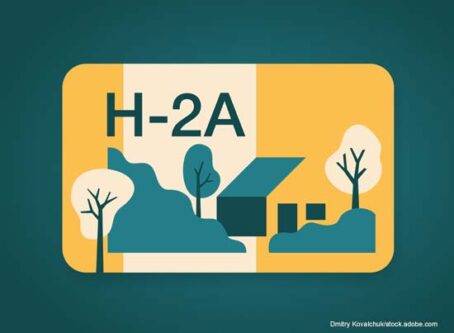Supreme Court says consumer bureau’s funding method is constitutional
The U.S. Supreme Court has ruled that the way the Consumer Financial Protection Bureau is funded does not violate the Constitution.
The court ruled 7-2 on Thursday, May 16, reversing a previous decision by the U.S. Court of Appeals for the Fifth Circuit. The lower court determined that the CFPB’s funding method was in violation because Congress authorized it to draw from the Federal Reserve System rather than annual appropriations.
Congress created the CFPB in 2010, and it began operation in 2011 as part of an effort to make sure consumers “are treated fairly by banks, lenders and other financial institutions.” In recent years, the agency investigated the problems caused by employer-driven debt and presented a report to the Federal Motor Carrier Safety Administration’s Truck Leasing Task Force.
Justice Clarence Thomas wrote the opinion for the Supreme Court.
“The Bureau’s funding statute satisfies the requirements of the Appropriations Clause,” Thomas wrote. “The statute authorizes the Bureau to draw public funds from a particular source – the combined earnings of the Federal Reserve System – in an amount not exceeding an inflation-adjusted cap … Although there may be other constitutional checks on Congress’ authority to create and fund an administrative agency, specifying the source and purpose is all the control the Appropriations Clause requires.”
Justices Samuel Alito and Neil Gorsuch dissented.
“Unfortunately, today’s decision turns the Appropriations Clause into a minor vestige,” Alito wrote. The court upholds a novel statutory scheme under which the powerful Consumer Financial Protection Bureau may bankroll its own agenda without any congressional control or oversight.”
According to the CFPB website, the agency has responded to more than 4 million consumer complaints, which have generated more than $20.7 billion in financial relief.
Truck Leasing Task Force
FMCSA created the Truck Leasing Task Force to end predatory lease-purchase agreements in the trucking industry. In these agreements, a carrier leases the truck to a driver while controlling the debt and the driver’s ability to repay it. It is common for truckers to pay tens of thousands of dollars in loan payments and repairs without ever becoming the owner.
The CFPB delivered a presentation about the issue at the Truck Leasing Task Force meeting last October.
“Businesses controlling the debt is the origin of some of the problems,” said Emma Oppenheim of CFPB.
In trucking specifically, the CFPB said some of the problems with these agreements include:
- Hidden details: Drivers often don’t fully understand the terms of the agreement.
- No ability to review or negotiate: Truckers often are faced with “take-it-or-leave-it” offers.
- Need for a job: The truckers who enter the agreements are typically unemployed and often have poor credit ratings.
- Inability to repay: The debt forces some truckers to either stay with the company or to “sneak away.”
- Inaccurate recruitment: Many truckers receive fewer hours and less pay than they were promised.
- Dubious valuation: Many trucks are leased several times over.
- Low earnings: There have been reports of truck drivers taking home as little as 67 cents in a week and $20,000 in a year on accounts that brought $95,000 to the company.
- Paycheck deductions: Of 300 drivers interviewed by USA Today, many paid not only for the truck but also for insurance, fuel, parking in the company lot and – in one case – for office toilet paper and supplies.
- Debt collection tactics: Collection companies call and say a driver owes hundreds of thousands of dollars for a truck that is valued at far less.
- Erroneous record keeping: Some drivers have reported being told they had past-due payments, without being provided any proof of this. LL









